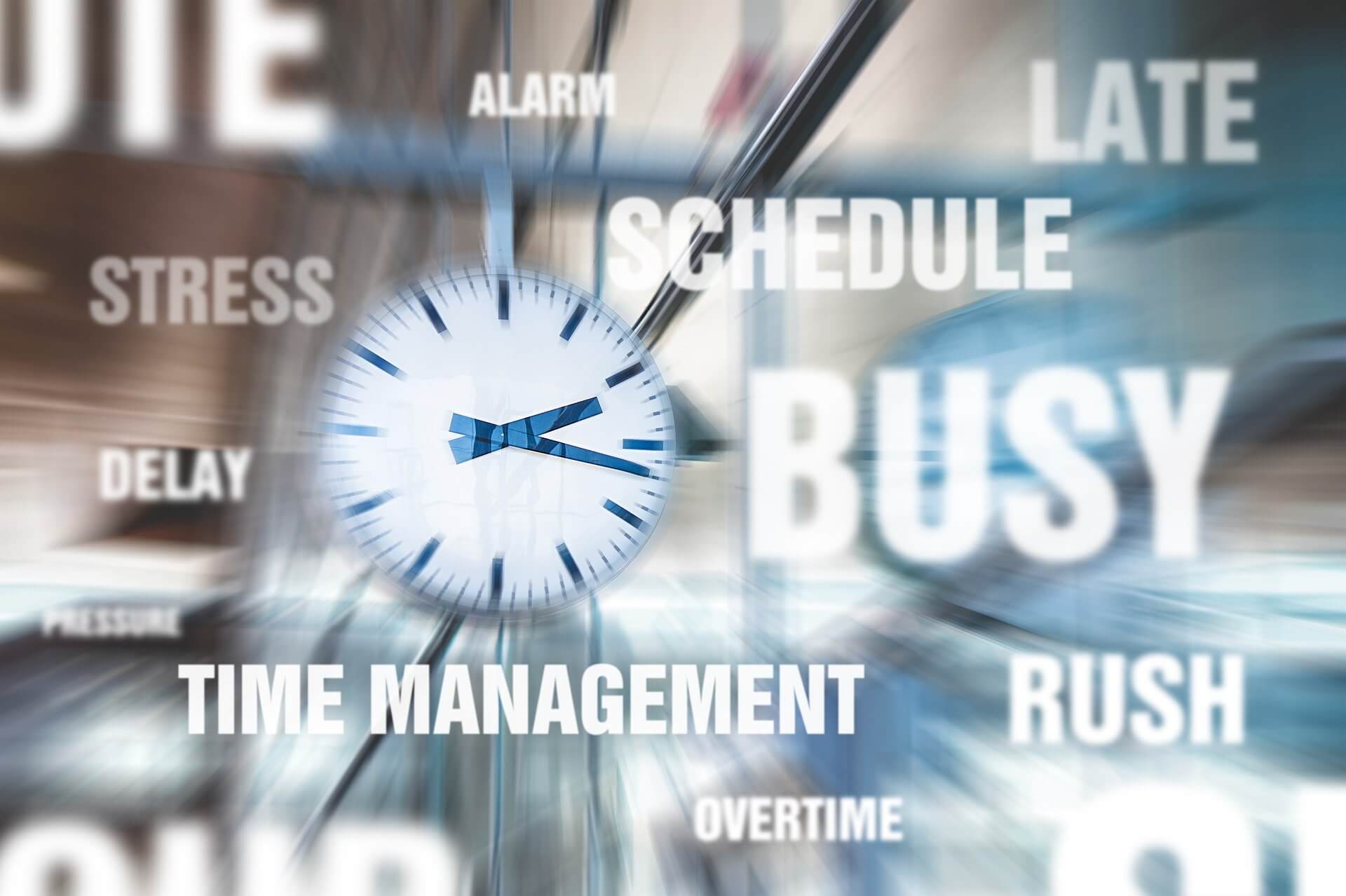It’s About What You Know!

“Ipsa Scientia Potestas est”
meaning
Sir Francis Bacon (1597)
Meditations Sacrae and Human Philosophy
When the term ‘The Transition Decade’, a term I coined in my January 2020 article by the same name at careersingovernment.com, is used, it is more than reasonable to conclude, even on elementary grounds, that the pursuit of knowledge will need to feature significantly throughout this decade. The reason is very simple. The more the workforce transitions towards a more agile and technologically enhanced entity within society, the more complex the knowledge base will be. If your intent is to be the master of your own destiny, rather than being subservient to whatever destiny picks out for you in terms of a career, then the pursuit of knowledge is the key.
Typically the more you know, the more you can engage in an informed critical analysis, the more you can apply your learnings to the world around you, the more successful you most likely will have been by the end of ‘The Transition Decade’. In this regard, Sir Francis Bacon (writing in the 16th Century, long before computers and the silicon chip), has provided us with a hidden truth, a mantra worth remembering. If you ever have reason to wonder about this, look at the motto of some well-known Universities. Many will have the Latin word Scientia (Knowledge) or Veritas (Truth) in them. In fact, according to Wikipedia, world-wide, there are at least 126 Universities and Colleges that refer to Scientia or Knowledge and at least 127 Universities or Colleges that refer to Veritas or Truth. It is, therefore, reasonable to conclude that knowledge in the pursuit of truth has and will continue to be of value in a decade of transition.
Some may already find themselves caught in what is often referred to as a ‘mid-career rut’. The Harvard Business Review addressed this at the dawn of ‘The Transition Decade’ in an excellent article by Laurence Minsky and Julia Tang Peters entitled: “Are You at Risk of a Mid-Career Rut?” In this article, they surveyed 500 mid-career respondents. What they discovered was that people who might be considered mid-career, typically ages 40-48, are at times in greater need of guidance around career issues than those just starting out in their career.
“The results were startling: Less than 50% of decisions made in mid-career were rated as successful. People are most susceptible to making decisions that lead to less-than-successful outcomes between the ages of 40 and 48, according to respondent assessments. The people reporting less-than-successful outcomes strongly agreed with such statements as:
“When making this decision, I was so busy with day-to-day work that I didn’t have enough time to think strategically.”


Some may already find themselves caught in what is often referred to as a ‘mid-career rut’.
“At the time I constantly second-guessed myself and tried to talk myself out of making a change.”
“I found the whole process of making the decision stressful and unnerving.”
In other words, at the very time when people attain management roles and need to make the decisions that could improve the enterprise — as well as decisions that could advance their career — many become trapped in the status quo. Focusing on the tasks of managing the day-to-day, managers stay in their comfort zones rather than setting new directions.”
Minsky, L, Peters, J.T. (September 2019). “Are You at Risk of a Mid-Career Rut?”
There are a variety of reasons for this. It is not unusual for the leadership team of an organization to have a higher tolerance of risk, especially when they have managers who are more risk-averse, as they manage the risk of the organization. As Minsky and Peters (2019) note: “the average mid-career manager feels they have more to lose if they make a mistake. They talk themselves into making decisions that play it safe, where they feel in control. They put off decisions when they should be examining what needs to change. In decision-making moments, they overestimate the risks of change and underestimate the risks of preserving the status quo.”
There are of course other possibilities. In some instances, they might simply be too good at their job. In other words, they are so astute at assessing risk, they have a reasonable risk appetite and continuously read the scene well, that it would be ‘illogical’ for the organization to promote them and thus lose that degree of certainty. The other possibility is that they have risen as far as they should go if professional competency is key criteria.
No matter what the reason and no doubt there are others, education in the broadest sense is required. According to the Collins Dictionary, Educate and Education is derived from two Latin words ‘Educare’ meaning “rear and train” and ‘Educere’, meaning to “lead out of.” Working with this definition, coaching has a true educative function for a person finding their career in a rut. This coaching might be ‘in-house’ or via an external provider. Done well, coaching should really get the person to go on that inner-journey of the self, to determine what the blockages might be. Sometimes it can be as simple as changing your own narrative. Once your own narrative changes and people notice the change to a more positive narrative, things often follow and usually for the better.
According to Harvard Graduate School of Education professors Robert Kegan and Lisa Laskow Lahey, any failure to meet goals and bring about change in life, may be derived from an ‘Immunity to Change’, which happens to be the title of their book on the subject. The locus of the problem lies with the person’s emotional state. Simply, moving out of or away from the known into an unknown, is often too much work, for no guarantee of any reward and thus emotionally draining. This nexus between status-quo and emotional well-being is very powerful. It is for example, why some people stay with an expensive mortgage, when a better rate and repayment may well be at the bank next door. The same is true when we think about career advancement. Having had the pleasure of attending Harvard Graduate School of Education and listening to Professor Kegan explain this and then the process to overcome the immunity to change, was life-changing for this writer! They advocate a four-step process
- Get goal-oriented
- Clear out obstructive behaviors
- Confront competing commitments
- Challenge your big assumptions
For more information see: Harvard Extension School. (ND). The Surprising Reason We Don’t Keep Our Resolutions (and How to Overcome It).
The recurring theme here is that often progression, change, advancement, will start with working on your inner-self. That personal knowledge and transformation is critical and as mentioned in my previous articles on www.careersingovernment.com you need a personal plan.
You also need to consider updating or diversifying your current knowledge base and skillset. This might be as simple as updating your First Aid and CPR qualifications, through to graduate courses and professional education programs. The Pew Research Centre asked a range of experts, Professors and Researchers in areas as diverse as Computer Science, to Communications, to Marketing, Data Analysis, Policy Analysis and Psychology, where they saw the future of work headed.
The Pew Research team, led by Lee Rainie and Janna Anderson, developed Five Themes from the experts. These were:
Hopeful Themes:
Theme 1:
The training ecosystem will evolve, with a mix of innovation in all education formats.
- More learning systems will migrate online. Some will be self-directed and some offered or required by employers; others will be hybrid online/real-world classes. Workers will be expected to learn continuously
- Online courses will get a big boost from advances in augmented reality (AR), virtual reality (VR) and artificial intelligence (AI)
- Universities still have special roles to play in preparing people for life, but some are likely to diversify and differentiate
Theme 2:
Learners must cultivate 21st-century skills, capabilities, and attributes.
- Tough-to-teach intangibles such as emotional intelligence, curiosity, creativity, adaptability, resilience, and critical thinking will be most highly valued
- Practical, experiential learning via apprenticeships and mentoring will advance
Theme 3:
New credentialing systems will arise as self-directed learning expands.
- While the traditional college degree will still hold sway in 2026, more employers may accept alternate credentialing systems as self-directed learning options and their measures evolve
- The proof of competency may be in the real-world work portfolios
Concerns:
Theme 4:
Training and learning systems will not meet 21st-century needs by 2026.
- Within the next decade, education systems will not be up to the task of adapting to train or retrain people for the skills that will be most prized in the future
- Show me the money: Many doubts hinge upon a lack of political will and necessary funding
- Some people are incapable of or uninterested in self-directed learning
Theme 5:
Jobs? What jobs? Technological forces will fundamentally change work and the economic landscape
- There will be many millions more people and millions of fewer jobs in the future
- Capitalism itself is in real trouble
Lee Rainie and Janna Anderson. “The Future of Jobs and Jobs Training.” Pew Research Center, May 2017.
In countries such as Australia, much of this is already underway. Due to the tyranny of distance in Australia, most Australian University conducts undergraduate and postgraduate degrees fully online. The exception to this is Doctoral degrees. Graduates from these online degrees are considered to have the same qualifications as those that did it in attendance mode and the graduate of the online program holds full alumni status, as does the graduate that studied in attendance mode. The 21st Century Skills, Capabilities, and Attributes are already being embedded in Syllabus documents that are derived from a national curriculum. At the end of 2019, the Australian Qualifications Framework was reviewed and a recommendation regarding the recognition of micro-credentials was made. This recognized the fact that employees may be updating their knowledge base from a variety of sources. Whilst some current jobs will disappear, the consensus seems to be that the technology that caused that displacement, will most likely give rise to new jobs, jobs that currently do not exist and do not even have a name. Consider people who graduated from school in the 1980s and 1990s. Specialist qualifications in areas such as ‘Information Technology’ didn’t exist to the extent they do today. If you studied Information Technology, you either did a Science degree or a degree in Engineering or if it had a business focus, then a Business degree. Likewise, degrees in ‘Nanotechnology’ is still relatively recent. Our knowledge of the world is continuously changing and with it our degrees.
What are the 21st Century Learning Skills, Capabilities and Attributes? In 2015, the Queensland Curriculum and Assessment Authority undertook an analysis of the international literature on this question. It identified the following skills as being required for the 21st Century.
- Critical thinking
- Creative thinking
- Communication
- Collaboration
- Personal and social skills
- ICT skills
Queensland Curriculum and Assessment Authority. (2015). “21st century skills for senior education: An analysis of educational trends (November 2015)”.
The upshot of this should be clear. As you strive to advance your careers, ensure that professional education programs and formal study leading to a formal qualification, cover these areas. Critical and Creative Thinking is important in the ‘Transition Decade’, as are ICT skills. Equally important is Collaboration, Communication, and Personal and Social skills. If you do an analysis of your own skillset against this list, you may well discover that there are one or two items on the list, in which you still need to develop, especially if you are planning to progress your career. Holding qualifications across a diverse area, from the sciences to the humanities, the analytical to the creative would seem to be one important way of future-proofing your career. Remember that “knowledge itself is power” and that power brings the possibility of real change. Don’t be dissuaded that others are not following suit. That’s their narrative and that means that it does not have to be yours. That is the journey they are on, your journey may well be slightly different.
“Two roads diverged in a wood, and I—
I took the one less traveled by,
And that has made all the difference.”
Robert Frost. (1915). The Road Not Taken.

CAREER ADVICE

GOV TALK




